Podcast: Play in new window | Download (Duration: 38:52 — 35.6MB) | Embed
Subscribe: Apple Podcasts | Spotify | Amazon Music | Android | Pandora | iHeartRadio | JioSaavn | Podchaser | Gaana | Podcast Index | Email | TuneIn | Deezer | Anghami | RSS | More
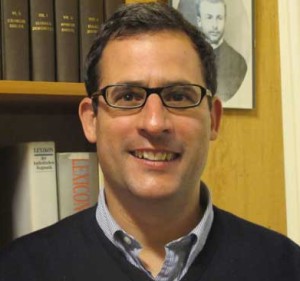 Episode 4 – “A Handmaid of the Lord – Mary/Joseph, Mary/John” – “A Handmaid of the Lord”: The life and legacy of Adrienne von Speyr with Dr. Adrian Walker, Ph.D.
Episode 4 – “A Handmaid of the Lord – Mary/Joseph, Mary/John” – “A Handmaid of the Lord”: The life and legacy of Adrienne von Speyr with Dr. Adrian Walker, Ph.D.
With Dr. Adrian Walker, we reflect on various aspects of Adrienne’s insight on the Mother of God as described in her book “A Handmaid of the Lord”. In part two of our conversation on the work, Dr. Walker reflects on the meaning of the “Mary and Joseph”and “Mary and John” relationships. We explore Adrienne’s meditations and how she presents vocation and the “religious state” through the lens of Mary.
Mary and Joseph’s life together was wholly bound to the earthly way of life—the form human existence has had ever since man was driven out of Paradise. Their life was mutual service in housekeeping, breadwinning and everything involved in the toilsome and harsh scraping out of a life. But even this common labor had its focus in the divine Child, who threw open everything earthly and drew it into the eddy of his mission. Out of this breaking open there arose much later the new form of community between Mary and John, in which everything previous is translated into the supernatural and the spiritual. Now the whole fruitfulness of the community lies in the spirit; the fruit is therefore no longer visible and measurable. The material element certainly continues to exist in some way even in this community, but so secondarily that it is now only a prerequisite of the new community, not an essential component. Thus John, in his care for the Mother, is not to be regarded as Joseph’s successor. Mary has, of course, remained the same; she walks a straight path along which her assent develops. But community with John does not mean for her the continuation of the same task. The first time her assent had been used to fulfill a call to marriage; the second time it is shaped to the fulfillment of a call to the “religious life”.
von Speyr, Adrienne (2012-03-09). Handmaid of the Lord (Kindle Locations 1706-1730). Ignatius Press. Kindle Edition.
For more episodes in this series visit Dr. Adrian Walker’s Discerning Hearts page
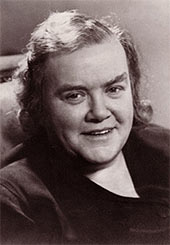 Adrienne von Speyr was a Swiss convert, mystic, wife, medical doctor and author of over 60 books on spirituality and theology. She’s inspired countless souls around the world to deepen their mission of prayer and compassion. She entered the Catholic Church under the direction of the great theologian, Hans Urs von Balthasar. In the years that would follow, they would co-found the secular institute, the Community of St. John.
Adrienne von Speyr was a Swiss convert, mystic, wife, medical doctor and author of over 60 books on spirituality and theology. She’s inspired countless souls around the world to deepen their mission of prayer and compassion. She entered the Catholic Church under the direction of the great theologian, Hans Urs von Balthasar. In the years that would follow, they would co-found the secular institute, the Community of St. John.
Adrian Walker is an editor of the journal Communio, an International Catholic Review, who received his doctorate in philosophy from the Pontifical Gregorian University in Rome. Dr. Walker has served as a translator for the English edition of Pope Benedict XVI’s, ” Jesus of Nazareth,” as well as numerous other theological works, including those of Hans Urs von Balthasar and Adrienne von Speyr.
Our series recorded at “Casa Balthasar,” a house of discernment for men located in Rome, Italy. The Casa was founded in 1990 by a group of friends and is directed by Rev. Jacques Servais, S.J.; Joseph Ratzinger (Pope Benedict XVI) has been closely associated with the Casa Balthasar from the very beginning as its Cardinal Protector.
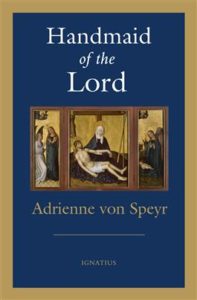
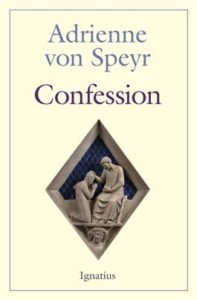
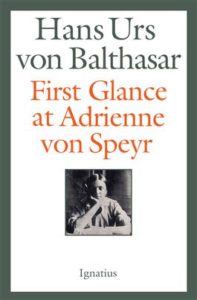 Many of Adrienne von Speyr’s books can found through Ignatius Press
Many of Adrienne von Speyr’s books can found through Ignatius Press


 Dr. Lilles continues the spiritual explorations of the Letters of St. Elizabeth of the Trinity. In this episode we discuss letter 269. In this special letter, only months before her death, Elizabeth sends this letter to her sister Marguerite:
Dr. Lilles continues the spiritual explorations of the Letters of St. Elizabeth of the Trinity. In this episode we discuss letter 269. In this special letter, only months before her death, Elizabeth sends this letter to her sister Marguerite:






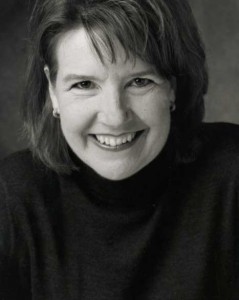
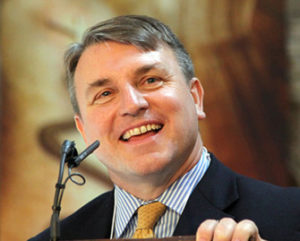
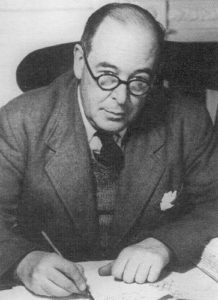 Four adventurous siblings—Peter, Susan, Edmund, and Lucy Pevensie—step through a wardrobe door and into the land of Narnia, a land frozen in eternal winter and enslaved by the power of the White Witch. But when almost all hope is lost, the return of the Great Lion, Aslan, signals a great change . . . and a great sacrifice.
Four adventurous siblings—Peter, Susan, Edmund, and Lucy Pevensie—step through a wardrobe door and into the land of Narnia, a land frozen in eternal winter and enslaved by the power of the White Witch. But when almost all hope is lost, the return of the Great Lion, Aslan, signals a great change . . . and a great sacrifice.
